How Paralives is using Patreon to compete with The Sims
The project receives almost $40,000 /month from 8,890 supporters.
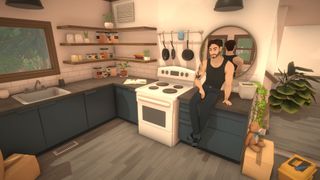
When we first reported on Paralives back in May, the self-described The Sims competitor had 7,000 Patreon supporters and was collecting around $16,000 a month. Since then—just two months later—it now has almost 9,000 supporters and is on the brink of hitting $40,000 per month. The outpouring of support for the upcoming life sim is incredible and, even though the game is less than a year old and still in early in development, support for Paralives' Patreon shows no signs of slowing down.
Patreon has become a more feasible option for small indie teams looking to secure funding. Studio Sokpop Collective runs a Patreon that gives subscribers two games a month for $3/£2 and uses it as a way to fund the team's larger projects. Connor Sherlock runs a 'Walking Simulator a month club' that gives his patrons an experimental first-person exploration game every month for $5/£4. Studio Far Few Giants follow this same structure, giving their supporters a pocket-sized game per month for $5/£4, each one a small section of a larger, overarching narrative.
Bigger indie projects have also received help from Patreon's platform. Kentucky Route Zero's developers Cardboard Computer joined Patreon back in 2018 and went on to secure Annapurna Interactive as a publisher. Ooblets' Rebecca Cordingley also used the platform's services around the same time to help finance her hyper-cute life sim.
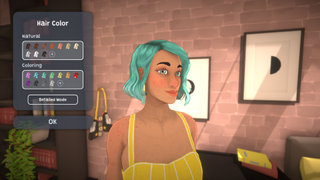
Ooblets' use of Patreon was what first encouraged Paralives founder and developer Alex Massé to join the service. He admired how much support the creature collector gathered from just screenshots and vision alone.
"I was really inspired by what the Ooblets developers did," Massé says. "They had almost nothing to show apart from concept art but they still shared it on Twitter and got a great response. I liked that. I didn't want to work on a game for three years and then, when I started to show it off, there would be no interest. So, from the very beginning, I wanted to share what I was working on. In June last year when I showed some gifs and videos of the game, people were really interested and it was a nice surprise."
Massé created the Paralives Patreon page with the hopes of getting enough support to hire an extra artist, but support for the game blew his expectations out of the water. Massé now has five people working on Paralives, with a goal of hiring a team of ten people, all funded by the money they receive from Patreon supporters.
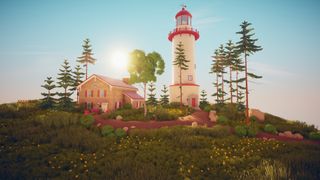
Paralives' Patreon tiers vary from $3/£2 to $50/£38 per month, and patrons get access to the Paralives Discord channel, can take part in community polls, download HD wallpapers, see in-progress screenshots and, for the higher tiers, even access weekly video chats with the Paralives team.
Unusually for a crowdfunded project, none the Patreon tiers for Paralives list a copy of the game as a reward for backers. Massé explains that the team are thinking of letting backers have beta access, but are still formulating a plan for when the full game is released.
The biggest gaming news, reviews and hardware deals
Keep up to date with the most important stories and the best deals, as picked by the PC Gamer team.
"It's a bit tricky!" Massé says. "Unlike Kickstarter where you pay $20 or $40 once and get the game, we can't associate a free game key with a tier. We could give the game to anyone who pledged on the $20 tier for at least a month but it might not be fair for someone who pledges for 15 months on the $3 tier and gets nothing. One option would be giving the game to anyone who has a lifetime contribution of at least 75% of the price of the game at release. It's too early for us to decide and announce the price of the game. So we're still thinking about all that."
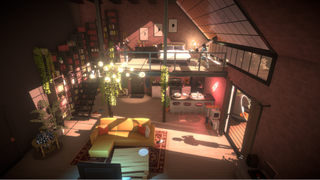
Massé's choice to use Patreon over other services, like Kickstarter and Indiegogo, was because Paralives would be an ongoing project, and a dedicated community would be key to sustainable funding. Massé emphasizes that the community are also helping to shape what the game will become through polls and surveys they can fill out.
We get to know our supporters very well, it's much more community based than Kickstarter. What we try to do with the Patreon community is to get as much feedback as we can from them
Paralives founder, Alex Massé
"We're trying to be really close to the community," Massé says. "We get to know our supporters very well, it's much more community based than Kickstarter. What we try to do with the Patreon community is to get as much feedback as we can from them. We made them vote for the name of the characters in the game (the Parafolk), vote for the name of the money in the game, details like that."
What Patreon supporters receive differs from project to project with many indie game developers treating the platform as a monthly game subscription service. But Massé and his team are working on one game, meaning that they need to approach what they give back to Patrons differently.
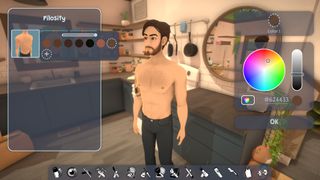
Patreon supporters of Paralives get exclusive information posts about the game and a chance to have their personal input, which makes it an unusual project. One of the most recent Patreon exclusive surveys was about LGBTQIA+ diversity where patrons could have their say in options they wanted to see in the character creator.
"The goal with Paralives is to allow everyone to recreate themselves in the game," Massé says. "No matter what country you're from, or your sexual orientation, or your gender, the goal of the survey was to make sure the game is inclusive. So the survey is to make sure we represent this community well in the game."
Relying on Patreon's longevity as the sole income for funding comes with its own stresses. If the platform changes its terms and conditions with projects or even shuts down, it will directly sever a crucial income for those projects. Massé says that the team has a back-up plan for if that happens.
"We have other plans," Massé says. We are in contact with some investors who are really interested in the project. We told them that we prefer to self publish the game and that the Patreon funding is enough for us. But if we need to increase the size of the team or if Patreon does not work out in the future, we can always contact them."
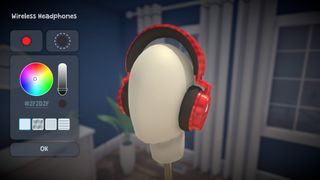
Although it's a daunting prospect, finding other means to sustain the project is something that Massé is confident in. Paralives' strong identity is directly tied to The Sims and this proves to be a good marketing strategy when talking about the game. As a big fan of The Sims himself, Massé says that the decision to make Paralives came from his love of the series, but also his frustrations. Paralives is his opportunity to show the potentials of what a life sim could achieve that EA hasn't explored.
"As a fan of The Sims, I think other fans were like me and were tired of the same thing," Massé says "It's always the same expansions, each time there is less and less content, and you have to buy everything every time a new base game releases. I think it's frustrating for the community. There's not much innovation, for example, the build mode—it's not changed a lot since The Sims 2. There are a few improvements but there's no risk-taking and I think that's what people like in Paralives, we're trying something different."
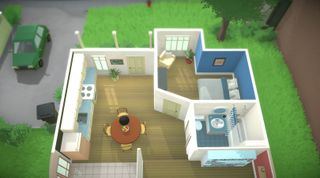
You can see this same sentiment with other indies inspired by gaming juggernauts. Madrid based studio Crema made Temtem, an unapologetic ode to Pokémon, and Hokko Life developer Robert Tatnell fully embraces Animal Crossing as a massive inspiration for his cosy community sim.
Like Temtem and Hokko Life, Massé says that he hopes that fans will like Paralives due to its improvements on the formula. The life-sim has more of a focus on building and designing the "dollhouse" homes where the Parafolk live and the game's Steam page and Patreon lists advanced building tools, an open-world neighbourhood, and fully customizable furniture and characters.
"It's a bit scary because it's a very ambitious project." Massé says "It's basically three games in one. You have the build mode, you have the character creator, and then you have the simulation mode. It's a lot of work and I think that's why there's not been a lot of competition in that genre, so I'm really glad we have the support to make it happen."
There's currently no release date for Paralives but Massé says that the team will be working hard this year and into 2021, with more information about the building mode to come after this summer. Although it's still in early in development, Paralives looks to be perfect for The Sims fans who would like a little more creative control and a new approach to the life-sim formula.
Rachel had been bouncing around different gaming websites as a freelancer and staff writer for three years before settling at PC Gamer back in 2019. She mainly writes reviews, previews, and features, but on rare occasions will switch it up with news and guides. When she's not taking hundreds of screenshots of the latest indie darling, you can find her nurturing her parsnip empire in Stardew Valley and planning an axolotl uprising in Minecraft. She loves 'stop and smell the roses' games—her proudest gaming moment being the one time she kept her virtual potted plants alive for over a year.
Most Popular

